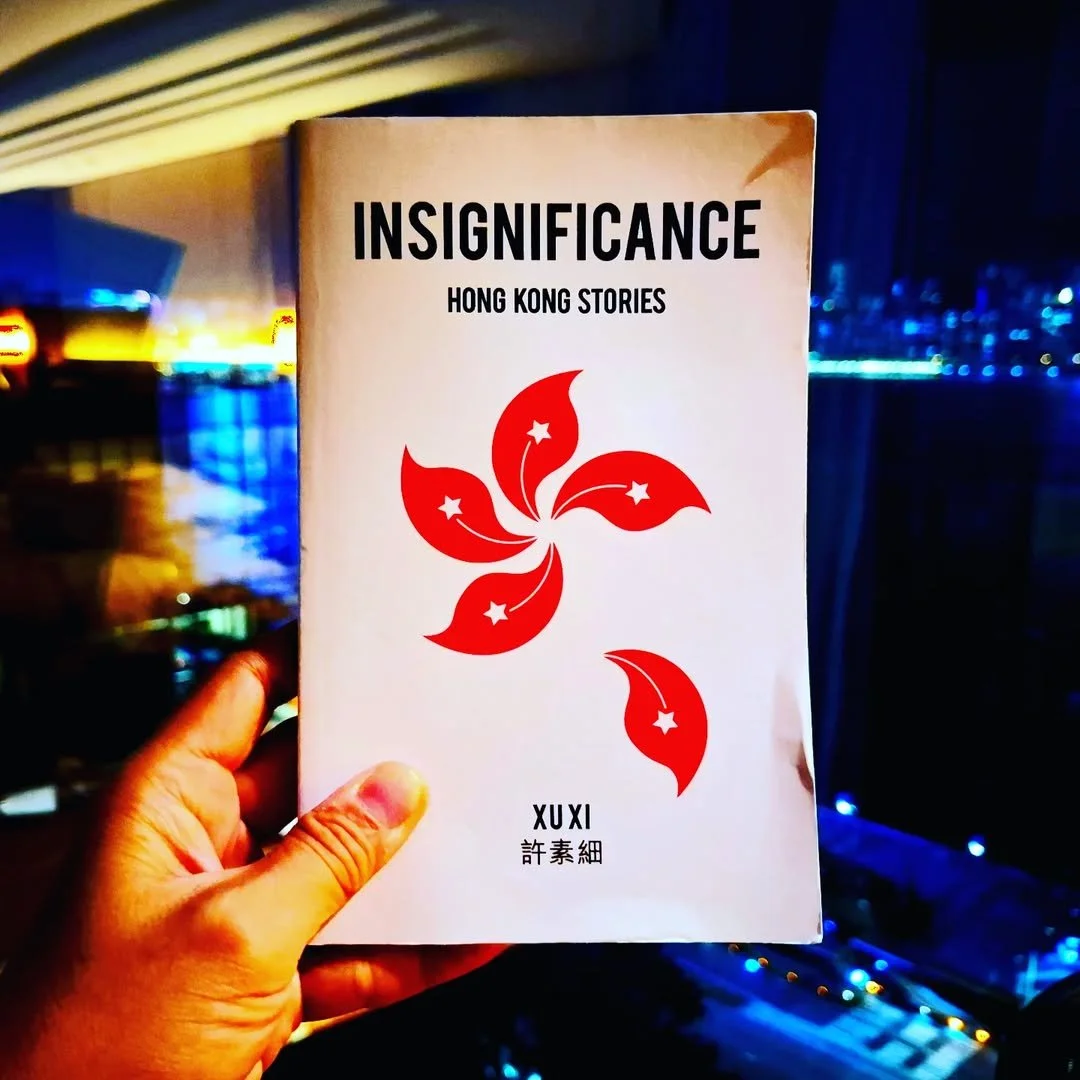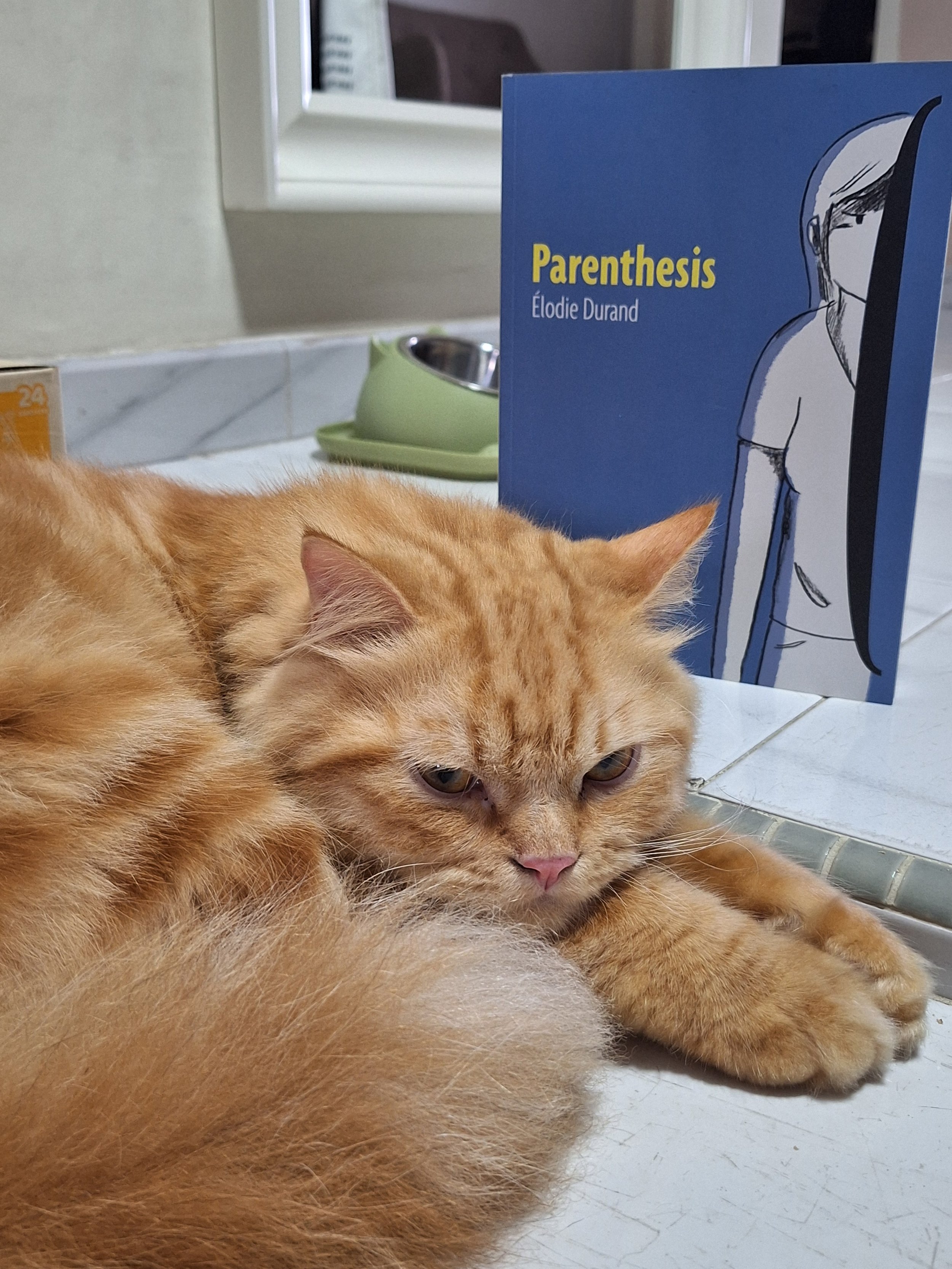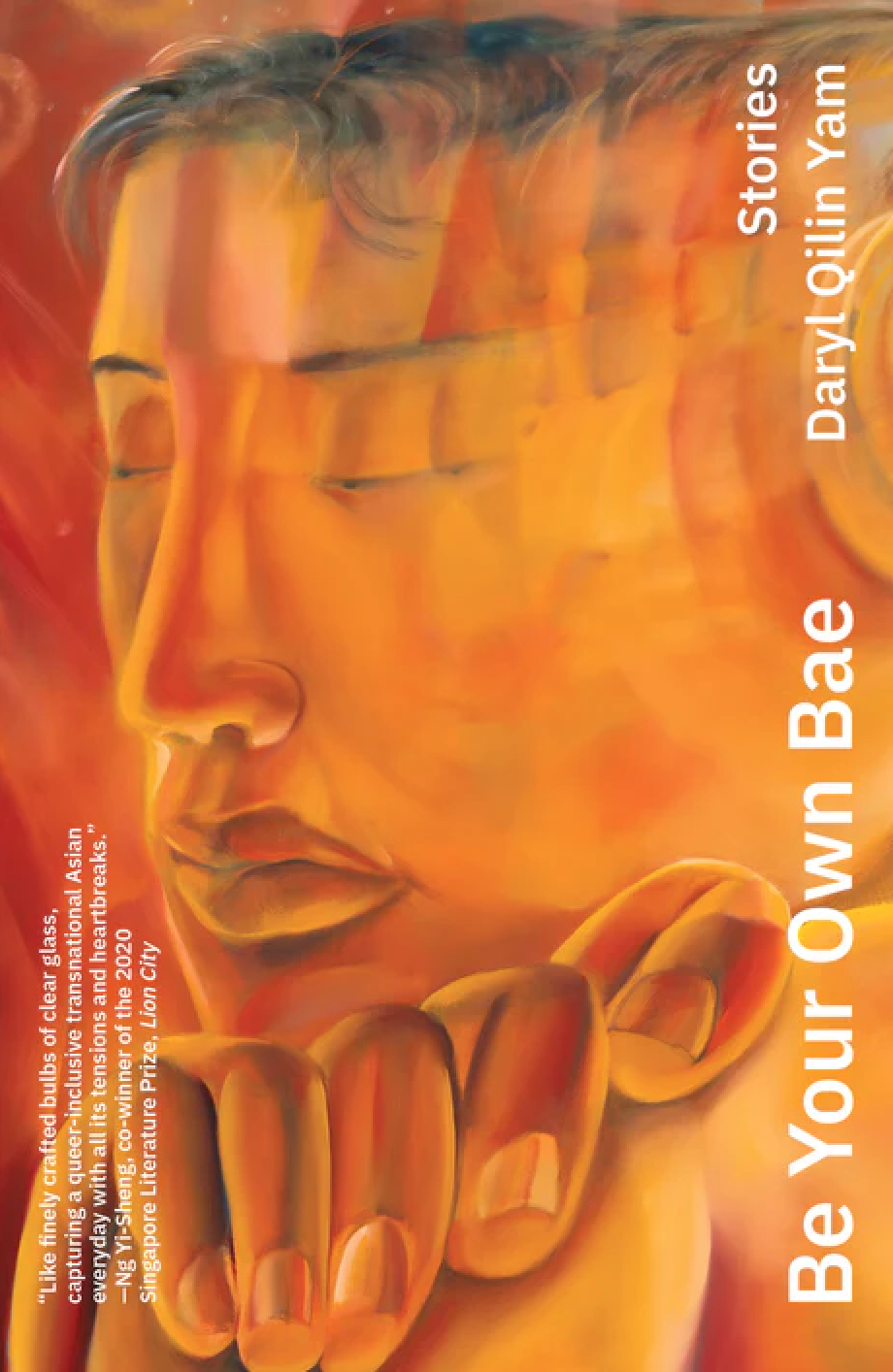#YISHREADS July 2025
By Ng Yi-Sheng / @yishkabob
It’s shorts season again! Last July, I devoted my column to the art of the short story, looking at how the genre’s been interpreted across history and geography. [1] This time, I’m being a little more exclusive, devoting my survey to works of Asian and Asian diasporic writing, all published within the last seven years.
A lot of this is edgy realist stuff, confronting issues of sexism, culture shock and abuse—but as you’ll see, some authors have decided to play with speculative tropes to communicate their ideas. I’ve also chosen to close with an anthology of fantastical kid lit, marking the very first time in this column I’m reviewing a book that’s yet to be released. Let it be known that I’m trying to keep up with the times!
Clan, by Soon Ai Ling
Adapted and transcreated by Yeo Wei Wei
Balestier Press, 2023
This is a helluva literary experiment. After doing a straightforward translation of the tales in Soon’s 2007 collection 《人也女也》 during the pandemic (published in this book’s companion volume, Diasporic), Yeo found herself chomping at the bit, aching to do take the stories a little further. This yielded Clan, a collection of the same stories, adapted by Yeo beyond the bounds of fidelity, all with the original author's blessing. Soon’s not even included in the copyright of half these tales!
But what are these stories even about? As befits a Guangdong-born immigrant to Singapore currently teaching at Nanyang Technological University, Soon spins yarns of women, often highly intelligent and talented Chinese women—cooks, embroiderers, opera singers, jewellery designers, brilliant office managers—who navigate the paths of migration and history between mainland China, Hong Kong, Malaysia and Singapore, usually finding their way towards a happy ending, a sense of reassurance that to cross the seas does not require an erasure of your own identity.
Yeo turns that upside-down. She uses the same characters and often the same plot points, sometimes breaking a story into two parts—but then changes crucial decisions or deletes epilogues, refusing easy resolutions. E.g. “Dreaming of Madam Bai and Her Noble Peacocks", in which a Yue embroiderer in 1975, having fled China during the Cultural Revolution, rediscovers her genius protégée offering lessons in a Geylang shophouse. The backstory of their relationship, and her sense of betrayal when Bai Xiangzu abandons her craft to marry a Singaporean school principal, remain intact, but where Soon reconciles them, Yeo has her leave in fury. [2] Or “Clan”, about a pregnant teenage Hong Kong schoolgirl given moral support by the nuns in her mission school, transformed to explore her pop culture ramblings and hallucinations of the vending machine as she endures labour in the delivery room. [3]
The most interestingly loaded of the stories, however, would be “Batik Rondo”, about a man returning from London to Penang to take over his dead father’s batik business, now run by his young second wife, Aisha. [4] His admiration of Aisha and her daughters’ skill at the craft remains intact, just like the explosive psychosexual tensions of both Aisha and his stepsister Shalinah developing feelings for him. Yeo focuses on the madness of female genius, making race secondary—we don’t find out till halfway through the story that the POV character and his dad are Chinese. Shocking to discover that in the original version, “Batik Melody”, Soon makes this all about race, claiming that batik originates from the Miao tribe (hello, Java and Gujarat would like a word); voicing the protagonist’s ick with conservative Islam when Aisha makes Shalinah wear a tudung; having him settle all the women’s problems through a stern talking-to (aided by a Quranic verse) and deciding to marry a nice Chinese girl at the end.
Still, these are pretty fascinating stories, whichever volume you choose. And it’s good that mother tongue writers aren’t just writing about their own cultures, even if it's a little clumsy and patronising without sensitivity readers. Loads of other issues to think about, e.g. the sympathetic portrayal of men (I guess they’re not big fans of female rage?) and the erasure of working class immigrant stories.
Happy Stories, Mostly, by Norman Erikson Pasaribu
Translated by Tiffany Tsao
Tilted Axis Press, 2021
Finally, literary representation for gay Batak emo dudes! I think I first heard about this book in the context of queer SFF: the author’s doing futuristic sci-fi in “Metaxu: Jakarta, 2038”, fantasy set in heavenly bureaucracy in “Welcome to the Department of Unanswered Prayers”, magical realism in the “The True Story of the Story of the Giant” and “A Bedtime Story for Your Long Sleep”, experimental plotless prose in “Enkidu Comes Knocking on New Year's Eve” and “Her Story”.
Truth is, however, a whole lot of this is pretty realist, with the author less interested in the speculative than exploring his own identity and biography, which is why (as the translator notes) the same motifs keep popping up over and over again in the tales: young suicidal gay men, failed middle-aged mothers, the frustrations of university life, Batak identity in the Javanese city of Bekasi, Catholicism, junk food, tooth decay. and it works—the whole is coherent, more than the sum of its parts, even though this actually contains three more stories than the 2020 original, Cerita-cerita Bahagia, Hampir Seluruhnya.
The title, Pasaribu says, is a riposte to a Goodreads commenter who complained that his first collection should’ve been called Stories of People in Suffering. Why write happy stories? he retorts. They’re what progressive heteros want to read to convince themselves that homophobic oppression isn’t that bad. Instead, he's drawn to the “hampir”, the almost, signifying the just-out-of-reach nature of inclusion and contentment, just one letter away from “vampir”, vampire. (Incidentally, he says one of these stories is inspired by Dracula, and I can’t tell which? Maybe the “Giant” one, but only in terms of structure???)
Anyhow, a fascinating and very original perspective on Southeast Asian queerness—but definitely a bit of a bummer. If you want comfort, go read BL.
Insignificance: Hong Kong Stories, by Xu Xi
Typhoon Media Ltd, 2018
I’ve read a few books by this author: her short story collection Daughters of Hui, her novel The Unwalled City, her memoir Dear Hong Kong. This, however, might be favourite of the lot: a selection of eleven tales about the residents of the city in the wake of the 1997 handover, China's rise, and the Occupy movement.
Of note is the fact that she isn’t trying to represent the common man/woman: the majority of her protagonists, e.g. those of “Longevity's Eyebrow”, “Off the Record”, and “Mariner”, are elderly to middle-aged, wealthy, mixed-race, libertine, polyglot elites, or else the offspring thereof, representing a cosmopolitan class that’s had to navigate the shifting fortunes and allegiances of the city, nostalgic for their heady days of youth under colonialism, having cheap drinks in brothels while chattering with motherly mamasans or having sexual trysts with diplomats from the American consulate.
You’d think that'd make them unrelatable, insufferable because of their privileges, but you feel the depth of their regrets and betrayals, and you too cherish this idyllic world that only existed for a few, where whites and Chinese lived as equals, casually fucking and fighting and falling in and out of love. Notably, she pairs white women with Chinese men way more often than I’d have thought historically accurate. Shades of Gopal Baratham's tales, [4] also multi-ethnically libidinous to the point that you wonder if he lived in a different, cooler city than the Singapore you know.
Yet Xu Xi isn’t sticking to a single set of tropes: she’s also telling stories of more everyday folks, e.g. the office lady who’s being used by her lover in “The Loan”, the only unsuccessful old boy from a prestigious school in “The 15th Annual Anniversary”, the ghost of a dead youngster in “Here I Am”. Speaking of which, she also goes into slipstream spec fic: the strange found documents of “Canine News”, the POV of an evolving ant colony in “The Transubstantiation of the Ants”, the allegory of shifting national identities as commodified skins in “All About Skin”. She has the range, darling!
Cursed and Other Stories, by Noelle Q. De Jesus
Penguin Southeast Asia, 2019
I initially came to this expecting it to be a work of Singaporean literature—the author’s based here, after all—but while our city’s mentioned as a workplace, it’s not the setting of any of the tales. No, the neocolonial dynamic is expressed in terms of the USA, with characters worrying about green cards, scholarships, the approval of/approval towards white men, how to encourage their kids to speak unaccented English free of Tagalog.
What’s really interesting to me is the antiheroism of many women—in “Posing” a woman cheated on by her American husband liberates herself from grief by cheating on him in term; in “Wanting”, an apparent spousal abuse victim turns out to be the abuser; in “Recollections of an Older Bride”, a woman turns to sex work not out of necessity but as a deliberate strategy to avoid the burdens of committed love. Her use of male POVs is particularly compelling, e.g. the son of a domestic worker who's dating an American man in “Trash”; the father of a hospitalised scholarship student in “Dreams in English”. Easy in postcolonial feminism to demonise men more provocative to show that women have agency and can also act amorally.
Similarly, the anti-idyllic portrait of the Philippines as polluted and mismanaged, distant from beach paradise images, so prone to disaster that people routinely make jokes about eruptions of Pinatubo. Word to the wise, though: though the book’s short, there's a stoic heaviness to the stories, with brutal dramas only revealed in their second halves, that makes a less than easy read. This is a danger of putting all your stories together, as I’ve learned: you realise what your repetitive obsessions are, and they aren't necessarily pretty.
The Beasts Beneath the Winds: Tales of Southeast Asia’s Mythical Creatures, ed. Hanna Alkaf
Amulet Books, 2025
This is an ARC of a book coming out in October: a collection of seventeen middle-grade short stories, all by different authors, all focussed on a kid encountering a Southeast Asian cryptid, monster or divine animal, each one accompanied by illustrations by Jes and Cin Wibowo. (I reviewed their graphic novel Lunar Boy just last month!) [5]
We've got the kapre and aswang and tikbalang from the Philippines, Sang Kelembai and pelesit and orang mawas from Malaysia; the garuda and barong and orang pendek from Indonesia, etc, etc. Pretty damn awesome—there's a rep from every nation except Brunei, Cambodia and Timor Leste.
The downside is that a number of the stories feel kinda similar after a while, possibly cos all the stories were commissioned (except for two open call submissions) with a pretty narrow scope. As a result, many of the tales feature a disaffected kid—often a diasporic American—who goes on a journey into the wilderness, whereupon this cryptid (who’'s often benevolent and eloquent, never mind what the original lore says) bestows them with a lesson, usually involving a renewed sense of pride in their identity and culture.
These patterns don’t have to mean cliché, though: I think it's delightful what Van Hoang did with the kỳ lân in “Dance of the Unicorns”, what Veeda Bybee did with the phaya naga in “Naga Fireballs” (it takes place in Las Vegas!) and the surprise twist of Brandon Hoang's thần trùng-centred “The Girl in the Graveyard”. Still, I do think it’s rather special when the story bucks the trend a little by having the kid be already comfortable with the culture, so we can focus on other things: the crime solving plot of Nadia Mikail’s “The Mystery of the Meowing Makcik”; the tale of sacrifice and resistance to Myanmar's junta in Mandy Moe Pwint Tu's “The Egg”. (This was one of the open call winners, and by coincidence, I also ended up judging her as the awardee of the 2024 Gaudy Boy Poetry Book Prize!) [6]
Also moved by the tales of third culture kids who’re comforted by similarly displaced creatures in Greg Van Eekhout’s “Rich and Strange” and Shing Yin Kor’s “The Mawas in the Airport”. And how couldn’t I be charmed by the closing story, Gail D Villanueva’s “Lexie Libot Gets Lost in a Wedding”, which reveals on its first page that the nuptials referenced are for a gay tikbalang-mortal union? All completely G-rated, but it's never too early to teach kids they can grow up to be monsterfuckers.
And I can definitely see how many youngsters would be charmed by a book like this, full of myths and monsters they’ve never heard of, each one nestled into an adventure of a child like themselves. Great gift idea for the more eccentric offspring of your friends.
BTW, full disclosure: I submitted a tale for the open call, and it got turned down—and I can see both how I was saying the same things as other writers already, while also not fitting into the right voice and style for readers this age. Still hope I can publish that somewhere someday—is anyone hungry for a fable about a kinnari?
Endnotes
[1] Ng Yi-Sheng/@yishkabob. “#YISHREADS July 2024.” 26 July 2024. https://singaporeunbound.org/suspect-journal/2024/7/26/yishreads-july-2024
[2] In Soon Ai Ling’s Diasporic, the more faithful translation of this story appears under the title "Bai Xiangzu and Her Embroidered Peacocks".
[3] In Diasporic, the more faithful translation appears under the title "The Song of Life”.
[4] This is in reference to Gopal Baratham’s Collected Stories, reviewed here: Ng Yi-Sheng/@yishkabob. “#YISHREADS April 2022.” 29 April 2022. https://singaporeunbound.org/suspect-journal/2022/4/29/yishreads-april-2022
[5] Ng Yi-Sheng/@yishkabob. “#YISHREADS June 2025.” 27 June 2024. https://singaporeunbound.org/suspect-journal/2025/6/27/yishreads-june-2025
[6] Mandy Moe Pwint Tu’s winning manuscript, Fablemaker, will be published by Gaudy Boy in September this year. More information here: https://singaporeunbound.org/gaudy-boy/fablemaker
Ng Yi-Sheng (he/him) is a Singaporean writer, researcher and LGBT+ activist. His books include the short-story collection Lion City and the poetry collection last boy (both winners of the Singapore Literature Prize), the non-fiction work SQ21: Singapore Queers in the 21st Century, the spoken word collection Loud Poems for a Very Obliging Audience, and the performance lecture compilation Black Waters, Pink Sands. He recently edited A Mosque in the Jungle: Classic Ghost Stories by Othman Wok and EXHALE: an Anthology of Queer Singapore Voices. Check out his website at ngyisheng.com.








In Taiwan Travelogue, ‘twinned souls… are at once lost, but also found, in translation.’ A review by Eunice Lim.